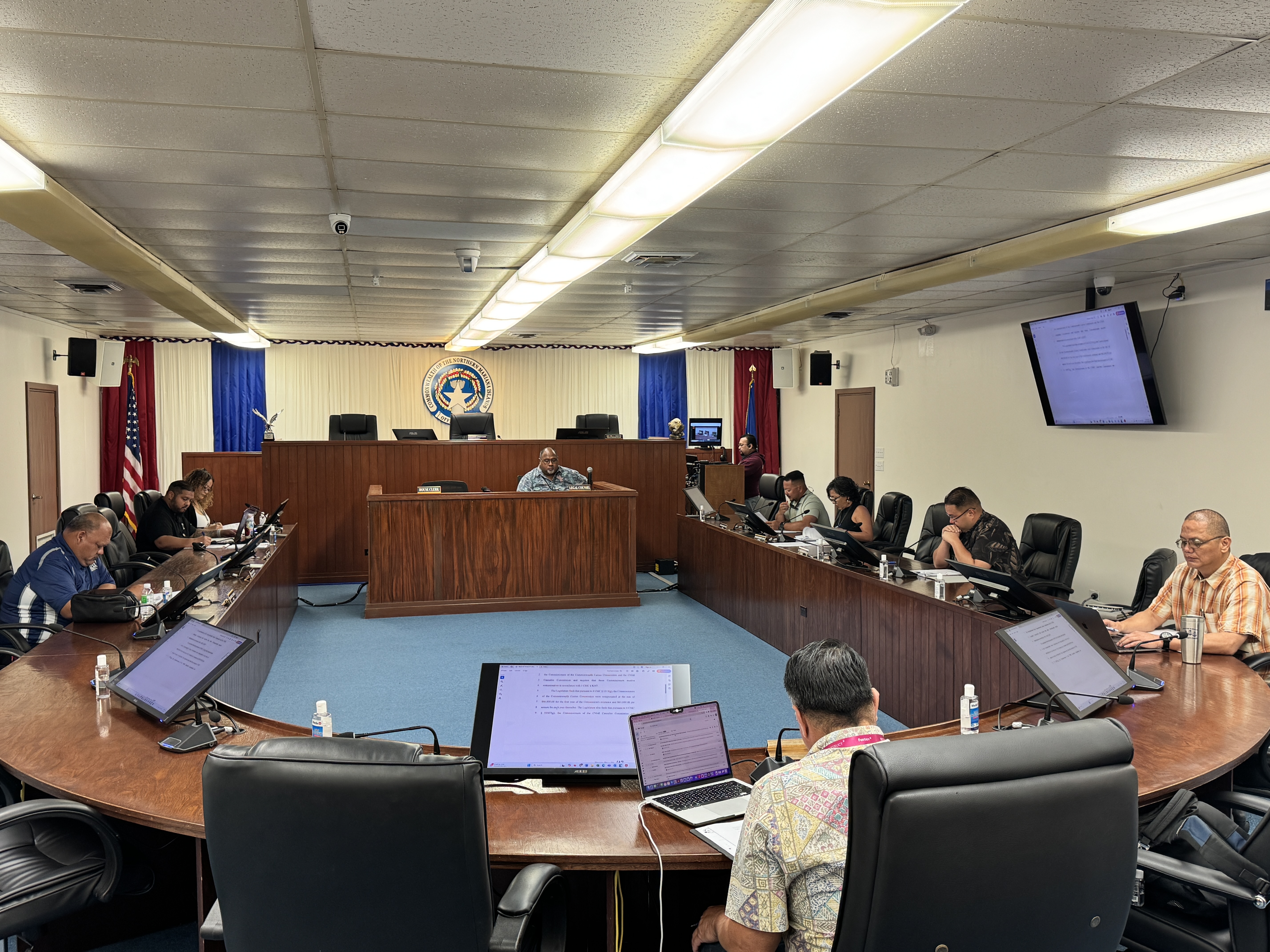House panel OKs bill penalizing judges for unjustified recusals
The House Standing Committee on Judiciary and Governmental Operations passed yesterday House Bill 23-119 House Substitute 1 which essentially imposes penalties on judges for unjustified recusals.
Yesterday, JGO committee chair Marissa Flores (Ind-Saipan) introduced amendments to H.B. 23-119, which she introduced back in September, during a committee meeting.
After a unanimous vote, the bill—to include amendments made—passed the committee in the form of H.B. 23-119 HS1 and will be brought before the House body for a vote next week.
Essentially, the amendment included the addition of two new sections focused on the recusal of judges and justices and to provide penalties for non-compliance.
In addition, the amendment calls for the exhaustion of all local judges and attorneys when it comes to appointing a judge pro tempore.
“Right now, there is nothing in the books that says a judge or justice has to provide any description of their recusal orders. Just like any other branch has to be transparent, I think the judges also should be transparent as they are also elected officials by the Commonwealth,” Flores stated.
“As we know, we do have pro temp judges that sit on the Supreme Court and Superior Court. They are more than qualified. That is why some of these amendments were made because we have capable attorneys, and we should exhaust all our local pool of attorneys prior to [appointing an off-island judge],” she said.
Flores, in a statement to Saipan Tribune after the meeting said, she, along with the rest of the 23rd Legislature is committed to upholding transparency, accountability, and good governance.
“This is beyond politics. I’m getting old. I don’t think I will be able to see this in my lifetime but what we’re doing, we’re doing for generations to come,” she said.
According to House legal counsel Joe Taijeron, H.B. 23-119 HS1 amends 1 CMC 3309 with respect to the disqualification procedure.
According to the amended version of the bill, “as set forth to the amendment to 1 CMC section 3309 with respect to the Disqualification Procedure, this legislation requires that the courts shall promulgate rules that clarify that a recusal order that lacks detail is reversible upon review. The reviewing judge or justice must expressly examine the underlying factual basis for the recusal order and find that there is a sufficient factual basis for upholding the order. In addition, the court shall also require the recusing judge or justice to file a detailed affidavit in support of the order of recusal. The need for details also applies to an order granting or denying recusal”.
The bill also states that because the public would be better served if the judiciary identified local qualified retired judges or attorneys to serve as pro tempore jurists, the courts shall appoint local attorneys on a pro tempore basis and exhaust the local pool of qualified attorneys before resorting to appointing a judge or justice from off-island.
The changes made are reflected on the bill as section C and D.
Section © states “with respect to an order of recusal, the judge or justice who reviews the order for reasonable and adequate factual or legal basis must expressly examine the underlying factual basis for the recusal order and find that there is a sufficient factual basis for upholding the order; A recusing judge or justice shall file a detailed affidavit in support of the order of recusal; An order granting or denying a motion to disqualify or recuse a judge or justice shall be supported by detailed factual basis. An order lacking this detailed factual basis is reversible upon review”.
Section (d) reads as; “the Superior Court and Supreme Court shall establish a pool of locally qualified retired judges or attorneys competent to serve on a pro tempore basis and shall exhaust said local pool of qualified attorneys before resorting to appointing a judge or justice from off-island.”

The House Standing Committee on Judiciary and Governmental Operations passed yesterday a bill that essentially imposes penalties on judges for unjustified recusals.
-KIMBERLY B. ESMORES






